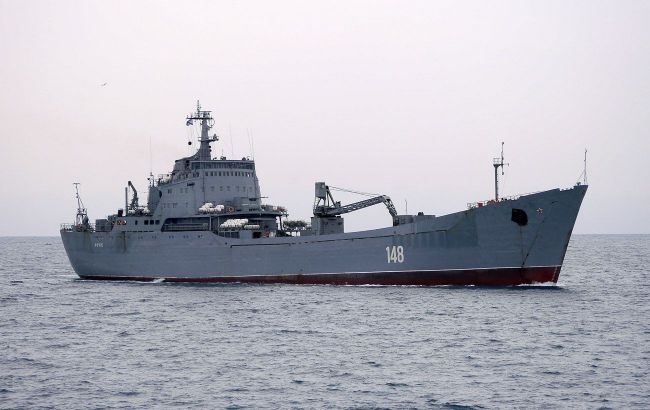Sanctions are choking Kaliningrad: Shipments rise but deliveries grind to a halt, intel says
 Illustrative photo: Sanctions have disrupted Russian logistics (Getty Images)
Illustrative photo: Sanctions have disrupted Russian logistics (Getty Images)
Sanctions have disrupted traditional supply routes to Kaliningrad. Sea transportation has increased, but logistics is collapsing, according to the Foreign Intelligence Service of Ukraine.
After the imposition of sanctions in 2022, Russia significantly increased the cost of transporting goods to the Kaliningrad region, an enclave without land connections to the rest of the country.
Previously, most shipments went through Lithuania, but now this route is severely restricted due to quotas and sanctions.
As a result, the load has shifted to sea routes.
While in 2019, cabotage cargo turnover amounted to about 0.4 million tons, in 2024, Oboronlogistika transported more than 2 million tons of cargo by sea.
However, the growth in volumes has revealed weaknesses - the ferry infrastructure is experiencing overload: queues, shortages of seats, and a reduced fleet make it difficult to ensure uninterrupted deliveries.
It is especially difficult for small businesses now, as large operators use their administrative resources to reserve seats on ferries in advance and effectively drive small carriers out of the market.
The sanctions not only destabilize logistics but also exacerbate the region's socio-economic problems, demonstrating the vulnerability of the supply system to Kaliningrad.
Sanctions against Russia's shadow fleet
Hundreds of covert oil tankers are sailing the world's seas under convenient flags and with non-transparent owners to transport oil in order to circumvent international sanctions against Russia, Iran, and North Korea.
In May, the European Union adopted the 17th package of sanctions against Russia, targeting nearly 200 ships of the shadow fleet.
Recently, ambassadors of EU member states agreed on the 18th package of sanctions against Russia, which will include, among other things, a reduction in the price cap on Russian oil exports.
In June, the UK government introduced a new package of sanctions against Russia. According to official information, the restrictions are aimed at the shadow fleet and companies that contribute to Russia's military aggression against Ukraine.
Read more about the Russian shadow fleet in RBC-Ukraine's report.

